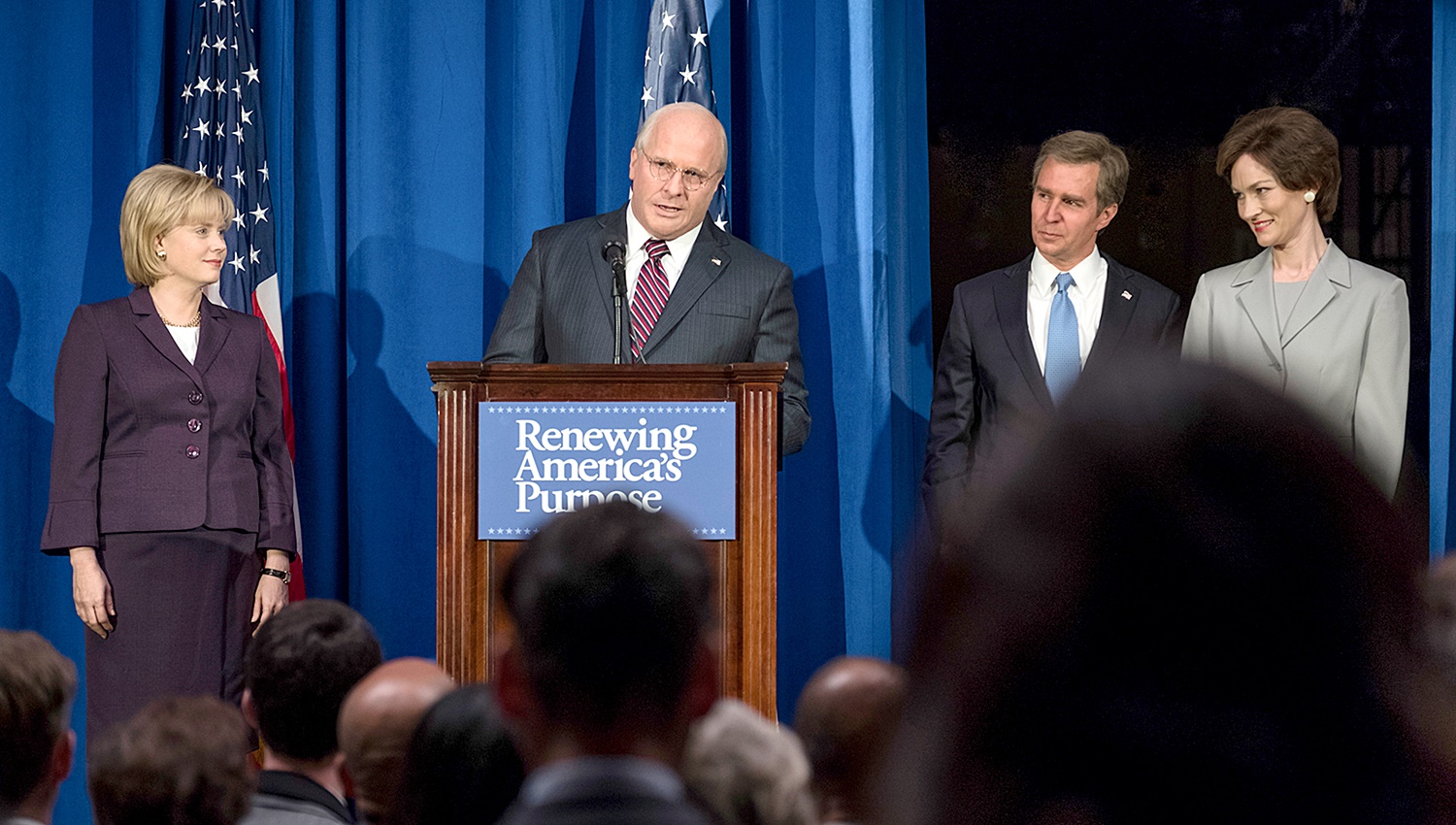
Vice
Dustin Chase
Lets get the Christian Bale performance talk out of the way right off the bat. Yes, the makeup and prosthetics are Oscar worthy, among the best of the year including Suspiria and Border. However you can find other Bale performances that are of the same or better quality, and that shouldn’t diminish his accomplishments here. Certainly one of the most dedicated and far reaching talents of our time, he fully inhabits this role, but to what end? For the average viewer, Vice isn’t an enjoyable film. Exactly like Adam McKay’s previous The Big Short, albeit less funny, perhaps more creative, and the performances are overall better. Consequently the same zany, hard-to-follow concept that will infuriate most. Writer/director McKay has found an arena he likes working in, but if this continues, he will become predictably unpredictable. Vice is an informational juggernaut that expects the audience to believe everything it tells you, even when it’s winking and admitting, they really have no clue what went on behind closed doors.
Wyoming 1963, Dick Cheney (Bale) was a drunk embarrassment who was getting scolded at home by wife Lynne (Adams). A “zero” she called him, before giving him an ultimatum to change, or she would leave. He changed, starting with working on power lines, interning for Donald Rumsfeld (Carell), becoming Chief of Staff for Gerald Ford, eventually 6th in line for the presidency as Secretary of Defense in the 90’s. The Cheney’s worked their way from Wyoming to DC and up the ladder. “Half this room wants to be us and half the room fears us,” Lynne whispers with pride. Yet when it was Cheney’s turn at the presidency after George HW Bush, the overweight, balding, zero personality guy with the experience and a lesbian daughter, polled at the bottom of the contenders list. It was the call from George W. Bush (Rockwell) that changed everything.
If Adam McKay could learn or be convinced to make his films more palatable for the viewer, his pictures might have more appeal and bite to them regardless of your politics.
If Adam McKay could learn or be convinced to make his films more palatable for the viewer, his pictures might have more appeal and bite to them regardless of your politics. In both Vice and The Big Short, he assumes the viewer will care to watch and re-watch his complicated narratives to get all the little crumbs and nuances he is dispensing. Bale’s weight gain and performance creates a diversion and major talking points that McKay didn’t have with The Big Short. Meaning even if the movie fails at the box office, the conversation can be geared toward the Oscar winner’s transformation, which seems to be where the film is headed. Bale is good, but it’s not a performance that even makes you hate the guy. You won’t understand him any more than you did before. Vice doesn’t seem interested as much in the man as it does his actions. Most are still reeling over the fact that Adams was snubbed for Arrival two years ago, but her performance here rarely affords depth beyond the supporting, forceful, and determined wife.
I won’t spoil the films most ingenious and hilarious moment, but lets just say it has something to do with the credits, and not the ones at the beginning or the end. McKay and company try to cover everything with Vice and the amount of information is so overwhelming, the engagement to what’s being delivered becomes numbingly boring. So many actors have portrayed Bush, the point that Rockwell’s brief appearance as the 43rd President feels like another imitation and ironically similar to dim-witted characters he has played in the past. Carell’s hair and makeup turning him into Rumsfeld is also extraordinary, his relationship with Cheney gets more screen time than any other character. Vice feels more like propaganda than it should, rubbing both sides of the isle the wrong way. The film as a whole will drag on Bale’s chances to win a second Oscar, meaning both best actor frontrunners have obstacles to overcome.
Final Thought
The makeup is the films only real slam-dunk
